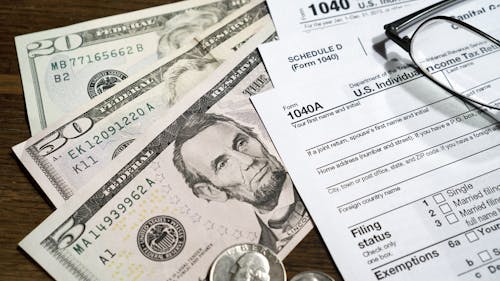NJ lawmakers pass revised fiscal year 2021 budget, implements millionaire's tax

Gov. Phil Murphy (D-N.J.) signed the fiscal year 2021 Appropriations Act into law yesterday, which he said is designed to provide tax relief for the middle class while dealing with economic challenges due to the coronavirus disease (COVID-19) pandemic, according to a press release.
“As we continue to grapple with the effects of the pandemic, building a stronger New Jersey requires us to continue to bolster the middle-class families who are the backbone of our state,” Murphy said, according to the release. “This revised budget not only recognizes the realities of the pandemic, offering much-needed tax fairness, including tax relief to the middle class, but also maintains our core principles so that we can emerge from this crisis stronger, fairer and more resilient.”
Fiscal year 2020 was extended as a result of the pandemic and the economic issues stemming from it, meaning the original fiscal year 2021 budget was revised and the new budget only covers a nine-month period from Oct. 1 through June 30, 2021, according to the release.
The budget reinstates the millionaire’s tax, which had previously expired in 2010. It extends the 10.75 percent rate reserved for income earned over $5 million to include income earned over $1 million, according to the release. Officials expect approximately $390 million in additional tax revenue over the next nine months due to this policy.
Additionally, the Appropriations Act implemented other policies to raise revenues during the upcoming fiscal year, according to the release.
It will restore a 2.5 percent corporation surtax on corporations with taxable net income in excess of $1 million, bringing in approximately $210 million. The annual assessment on net written premiums of health maintenance organization insurance plans will also be raised from three percent to five percent, bringing in approximately $102.7 million.
Officials estimate approximately $750 million in total new tax revenue over the next nine months. Revenue combined with emergency borrowing allowed officials to fund other services, according to the release.
“This is a coronavirus-response budget that is needed to contend with the crisis conditions created by the pandemic and its impact on the state’s economy,” said Sen. Paul Sarlo (D-N.J.), chairman of the New Jersey Senate Budget and Appropriations Committee.
The final budget maintains funding for K-12 education, municipal aid, direct property tax relief, the Child and Dependent Care Tax Credit and tuition assistance programs, according to the release.
The legislature implemented new investments in the Clean Water and Drinking Water programs, the Children’s System of Care, Regional Coordinator Hospitals and Federally Qualified Health Centers, extraordinary special education, early voting and the state’s emergency feeding organizations through the budget.
The budget is also expected to deliver tax rebates to approximately 800,000 middle and working class families, according to the release.
Legislators also sustained funding for mental health services in schools, higher education operating aid, medical payment assistance known as Charity Care and graduate medical education, according to the release.
Murphy signed additional legislation to provide relief for other groups. The eligibility for the New Jersey Earned Income Tax Credit was expanded from individuals ages 25 and above to now include individuals age 21 and over. In addition, soldiers will no longer have their combat pay included in their gross taxable income.
The budget also includes approximately $4.8 billion to strengthen the state’s pension system, according to the release.
“By providing significant tax relief through updated tax codes and keeping the programs people need in place, the Murphy Administration and the legislature are demonstrating good governance by prioritizing working people, veterans, seniors, young adults and children in this budget,” said Lt. Gov. Sheila Oliver (D-N.J.).
To prepare for a potential second wave of COVID-19 and address financial challenges, the budget includes a $2.5 billion surplus and allows the state to issue up to $4.5 billion in general obligation bonds, according to the release.
“This budget gives us the tools we need to help New Jerseyans meet the challenges of this pandemic, while still providing the resources necessary to better protect the state during these fiscally unprecedented and volatile times,” said State Treasurer Elizabeth Maher Muoio.



